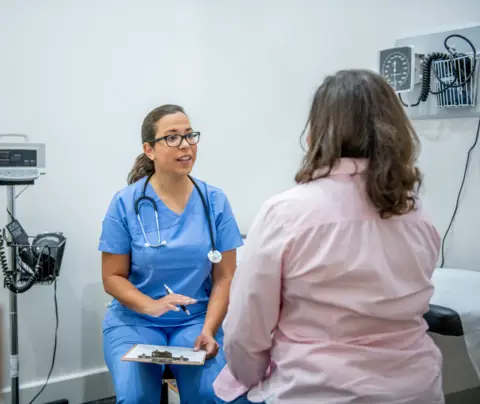The published articles provide knowledge and recommendations for intervention planning across a range of settings
WASHINGTON, D.C. — A research collaborative supported by the National Institute of Health’s Helping to End Addiction Long-term® Initiative, or NIH HEAL Initiative, has published a supplemental issue in Prevention Science summarizing their work related to preventing opioid misuse and opioid use disorder (OUD). Authors include experts from nonprofit research institute RTI International.
The supplemental issue contains nine research articles and two commentaries that discuss ongoing intervention trials aimed at reducing the onset of opioid misuse and OUD in youth and young adult populations — all written by researchers from the HEAL Prevention Cooperative (HPC). The included studies are part of a broader HEAL Preventing Opioid Use Disorder Program, which is focused on four strategic areas: identifying risk; studying the role of social determinants and policy and their impacts on health equity; developing effective interventions; and supporting research toward disseminating and implementing sustainable, scalable prevention services.
“Four years ago, the NIH charged the HEAL Prevention Cooperative with testing and developing evidence-based interventions to prevent opioid use in youth and young adult populations,” said Dr. Phillip Graham, multiple principal investigator (MPI) of the HPC Coordinating Center (HPCC) at RTI. “Prevention is an integral piece of the nation’s response to opioid misuse and overdose deaths and we realize that the translation of knowledge to practice is one barrier to changing the course of the overdose crisis.”
Article topics include adapting evidence-based interventions specifically for the populations with higher risk; expanding prevention to underserved populations across the Institute of Medicine’s Continuum of Care; and a hybrid approach to collecting implementation data to complement information on intervention effectiveness and costs.
“The ongoing drug overdose crisis requires a rapid, proactive and collaborative approach,” said Dr. Ty Ridenour, MPI of the HPC Coordinating Center at RTI and a supplemental issue editor. “We are proud of our scientific and practical contributions and hope our findings and lessons will lead to real-world uptake, impact in the field of substance use prevention and ultimately help young people avoid the dangers of opioids misuse.”
The articles provide knowledge and recommendations for intervention planning from in process research studies that are relevant to community leaders, local and federal policymakers, practitioners across a range of settings, and researchers.
Research under the HEAL Prevention Cooperative reported in this press release was supported by the National Institute on Drug Abuse at the National Institutes of Health through the NIH Helping to End Addiction Long-Term (HEAL) Initiative. The content is solely the responsibility of the authors and does not necessarily represent the official views of the National Institutes of Health.
About the HEAL Preventing Opioid Use Disorder Research Program
Launched in 2019, the National Institutes of Health's (NIH's) HEAL Preventing Opioid Use Disorder Research Program supports research in four strategic areas: intervention development and evaluation; risk and protective factors; social determinants of health; and dissemination, implementation, and sustainability of preventive programming. Preventing Opioid Use Disorder includes the HEAL Prevention Cooperative focused on developing and testing preventative interventions for older adolescents and young adults ages 15–30 who experience risk for opioid misuse and use disorder.
The HPC includes the HEAL Prevention Coordinating Center housed at RTI International, which facilitates data sharing and collaboration across the HPC, and 10 HPC research projects that work across a variety of settings and populations to test preventive intervention strategies.
For more information about the HEAL Preventing OUD program, visit here.
About the NIH HEAL Initiative®
The Helping to End Addiction Long-term® Initiative, or NIH HEAL Initiative®, is an NIH-wide effort to speed scientific solutions to stem the national opioid public health crisis. Launched in April 2018, the initiative is focused on improving prevention and treatment strategies for opioid misuse and addiction, and enhancing pain management. For more information, visit: https://heal.nih.gov.
About RTI International
RTI International is an independent, nonprofit research institute dedicated to improving the human condition. Clients rely on us to answer questions that demand an objective and multidisciplinary approach — one that integrates expertise across the social and laboratory sciences, engineering and international development. We believe in the promise of science, and we are inspired every day to deliver on that promise for the good of people, communities and businesses around the world. For more information, visit www.rti.org.

RTI International Media Relations:
As an independent, scientific research institute with a mission to improve the human condition, RTI International is engaged by clients and partners to conduct evidence-based research and project implementation. We share our work in line with journalistic and scientific standards and maintain a record in RTI’s Newsroom.
RTI International is an independent scientific research institute dedicated to improving the human condition. Our vision is to address the world's most critical problems with technical and science-based solutions in pursuit of a better future. Clients rely on us to answer questions that demand an objective and multidisciplinary approach—one that integrates expertise across social, statistical, data, and laboratory sciences, engineering, and other technical disciplines to solve the world’s most challenging problems.
For more information, visit www.rti.org.


